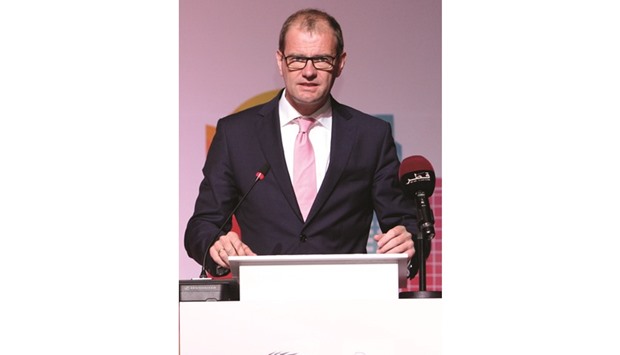The Organisation for Economic Co-operation and Development (OECD) has plans for “potential cooperation” with Qatar officials to discuss a benchmarking process for small and medium-sized enterprise (SME) policies, an OECD official has said.
Deputy secretary general Stefan Kapferer told reporters in a recent business forum that OECD is planning to invite Qatar to an upcoming meeting in Paris to discuss SME policies such as transfer or sharing of best practices, access to finance, skills development, and entrepreneurial culture, among others.
Kapferer said he met with Qatar Development Bank (QDB) officials to discuss the plan, which, he said, would also “be of interest to the Qatari government.”
The official explained that the discussion with QDB was an offshoot of a meeting held in Bahrain three weeks ago where the OECD deliberated with other countries in the Gulf region “about a new project on SMEs.”
“We had a discussion with QDB about potential cooperation with colleagues here in Qatar. We will invite them to take part in this meeting and projects. I’m sure this will be of interest to the Qatari government, as well.
“The idea is if we can link different Gulf countries, which are relatively in a similar situation, it is easier to adopt strategies. These strategies may be successful in other Gulf countries like in Bahrain, or something which worked in Dubai, and could be adopted in Qatar. So the idea of benchmarking policies could help these countries learn from each other,” Kapferer further explained.
Asked when the next meeting will be held, Kapferer told Gulf Times: “The last meeting was three weeks ago. Now different countries said ‘yes, we are interested’ so we will have the next meeting maybe in May. We will have meetings in Paris but also again in the Gulf region because our experts will travel to the Gulf, as well but I can imagine that the next meeting will be in Paris.”
Kapferer stressed that since SMEs “are more agile and flexible” compared to multinational companies (MNCs), their role in a country “should be to boost innovations, to find new business models and new business ideas.”
He suggested that Qatari SMEs should try to be part of a global value chain, citing smaller countries like Slovenia and Slovakia, which do not have MNCs compared to Germany, France, the UK, or the US.
“Slovenia and Slovakia are often a part of a global value chain. That means they are producing intermediaries for large companies; they innovate and learn from their relationship with these MNCs,” he said.
He added: “This is something I would recommend to small countries – try to become a member of global value chains with big MNCs from other parts of the world. If a company is successful and becomes a part of these global value chains, then it is a competitive and innovative company; it is strengthening its competitiveness in the future.”

Kapferer: Qatari SMEs should try to be part of a global value chain. PICTURE: Nasser TK
